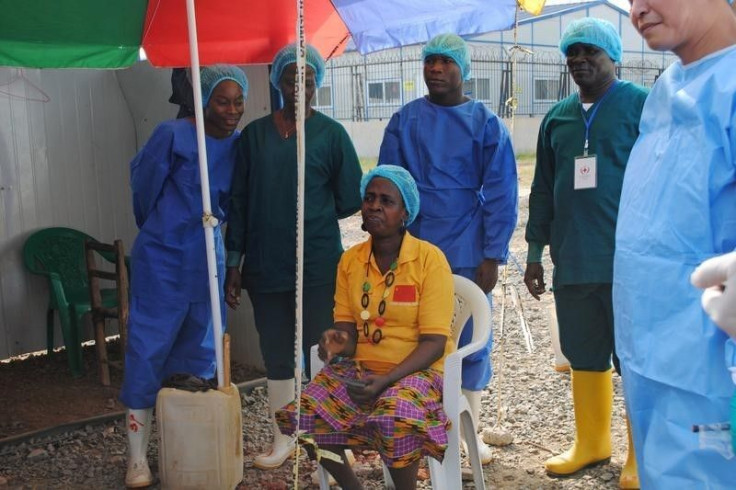Liberia Declared Ebola-Free, But Outbreak Continues Over Border

MONROVIA (Reuters) - Liberia was declared free from Ebola by the government and the World Health Organisation (WHO) on Saturday after 42 days without a new case of the deadly virus, which killed more than 4,700 people there during a year-long epidemic.
However, medical charity Medecins Sans Frontieres (MSF) urged vigilance until the worst outbreak of the disease ever recorded was also extinguished in neighboring Guinea and Sierra Leone.
A total of 11,005 people have died from Ebola in the three West African neighbors since the outbreak began in December 2013, according to the WHO.
"Liberia is free of Ebola today ... We are celebrating the victory over Ebola," Liberia's Information Minister Lewis Brown announced on state radio. "Whether you are in this party or not, we are united today. We have defeated it today."
Liberia was recording hundreds of new cases a week at the peak of the outbreak between August and October, causing international alarm.
The United States sent in hundreds of soldiers to help build treatment clinics in a country founded by freed U.S. slaves, a move seen as a game changer in the battle to stem the disease, contracted through physical contact with sick people.
Also critical was the government's national awareness campaign to educate Liberians on how to protect themselves from Ebola.
"It is a tribute to the government and people of Liberia that determination to defeat Ebola never wavered, courage never faltered," the WHO said in a statement on Saturday.
MSF said that Liberia's completion of the WHO's benchmark for the end of an Ebola outbreak - 42 days without a new case, marking twice the maximum incubation period of the virus - should not lead to complacency.
“We can’t take our foot off the gas until all three countries record 42 days with no cases,” Mariateresa Cacciapuoti, MSF’s head of mission in Liberia, said in a statement.
She urged Liberia to step up cross-border surveillance to prevent Ebola slipping back into the country.
The U.N. Special Envoy on Ebola, David Nabarro, said this week that Liberian authorities had pledged to maintain heightened surveillance for at least a year after being declared Ebola-free on Saturday.
Nabarro suggested that, even though fewer than 20 new cases were reported in Guinea and Sierra Leone last week, it could take months to get to zero.
International aid organizations were forced to step in as the Ebola outbreak ravaged the region's poorly equipped and understaffed healthcare systems.
MSF, which was highly critical of the slow response by the United Nations and western governments, opened the world’s largest Ebola management center in Monrovia, with a capacity of 400 beds.
According to the WHO, a total of 868 health workers have caught the virus in Guinea, Liberia, and Sierra Leone since the start of the outbreak, of whom 507 died.
International Medical Corps (IMC), a charity that ran two Ebola clinics in Liberia, appealed for international support in rebuilding the healthcare system there in the wake of the virus.
"Now is the time to build on the momentum we have generated to strengthen the Liberian health system,” Anouk Boschma, IMC's acting country director in Liberia, said in a statement.
(Writing by Daniel Flynn and Joe Bavier; Editing by Larry King and Clelia Oziel)
Published by Medicaldaily.com



























